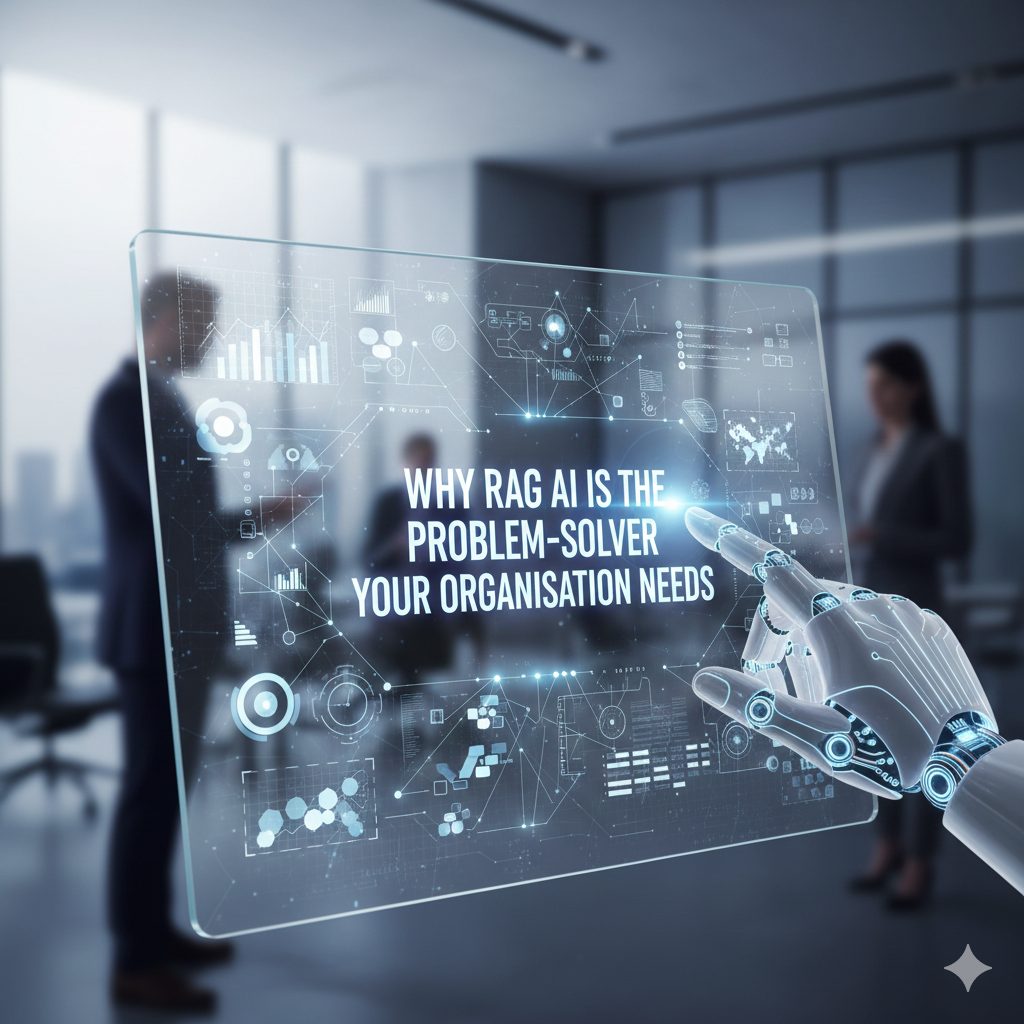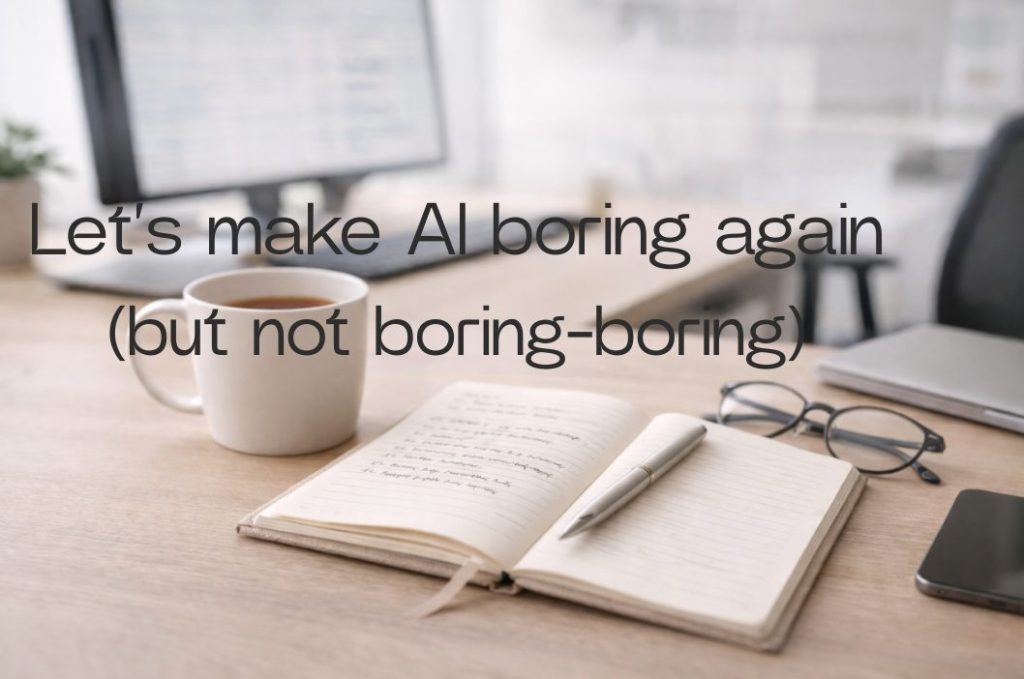
Technically it was three different bars on three different days, but all were fascinating and revealing conversations about peoples’ knowledge and understanding of AI that I had over the last 10 days.
Let’s start with the Doctor.
GP, lovely man from successful surgery whose passion is reducing health inequalities across populations he cares for. He’s fabulous. He’s already using AI for simple tasks like answering simple incoming queries and summarising consultations. Those are great use cases for AI.
He talked enthusiastically about using AI to deliver operational efficiencies and better outcomes. He’d obviously had the “give us all your data and we’ll join it all together to give you better insights” pitch from a global player. And on the surface, it sounds great.
However, my concern, not just for him, but for everyone thinking about using AI is, how can you be certain it’s good thing if you don’t understand it?
So, I asked him if he knew how AI and machine learning worked. He admitted he didn’t. Yet only moments earlier, he’d been waxing lyrical about the potential and virtues of AI.
So, I took the liberty of ordering another pint and tried to explain how they work, how they are developing so quickly, and what to watch out for. I had two main recommendations for him.
First, think hard about the specific use cases he wanted to use AI for. They need to be non-trivial (i.e. demonstrate real impact) but highly focused. Don’t pick something too big or involving too many people. Not everyone likes change…especially when they don’t understand it and/or feel threatened by it.
The second was to ask questions. Lots of questions. And don’t be fobbed off by the technobabble and jargon that will inevitably come your way.
I wasn’t sharp enough at the time (too many beers?) but I was reminded of the motto of the Royal Society – “Nullius in verba”. “Take nobody’s word for it”. Wise advice since 1662.
The second linked conversation was both fascinating and terrifying. It was with a global Cyber-Security expert who talked about Psych-Ops. That’s how malicious states and criminal gangs use AI combined with psychological methods to steal, spread misinformation, and much, much worse.
One of his observations was that large populations are becoming psychologically conditioned to accept what they are being presented with as fact, not ask probing questions, and act in ways that are ultimately not in their best interests.
There’s a tenuous link to the third conversation with a Management Consultant. We were talking about the “unfortunate” Deloitte incident in Australia where they produced a report for the Government which had AI generated “inaccuracies” and are having to pay back fees.
That’s bad for lots of reasons. But as a general rule, consultants are bright, hardworking people paid a lot of money to get things right. So, it begs the question, why did no one check the report and the sources?
Everyone’s heard the phrase “human in the loop”, so what happened here? From the outside it’s easy to assume it’s a classic case of laziness, complacency, or both.
But given that consultants are usually bright and hardworking, the conversations with the doctor and the cyber-expert made me wonder if it’s something else. Are we all just becoming conditioned to accept whatever AI tells us?
A wise person said to me in 2023 when I was starting on my AI journey “AI is the best b*******r in the world. It will walk right up to you, look you in the eye, and with a big confident smile, it will lie right to your face.”
I think about that a lot. Yes, we build in guardrails (latest buzzword) to stop hallucinations, but you still need to check all the sources before you quote them. Check that the words make sense. Check that the AI is helping. And if it’s not, fix it.
There’s no doubt that AI can be a fantastic force for good, as my friend the good doctor is already finding out. But we will all do well to remember the wise words from 1662, nullius in verba. Especially in 2025 when the words come from AI.
Epilogue:
As I come through the door late, I say to my wife “Sorry I’m late again darling, I fell in with a bad crowd.”
“Hmmm…that seems to happen a lot. But there seems to be a common denominator. Has it ever occurred to you that YOU might be the ‘bad crowd’?”
Nope…it never has 🤣




